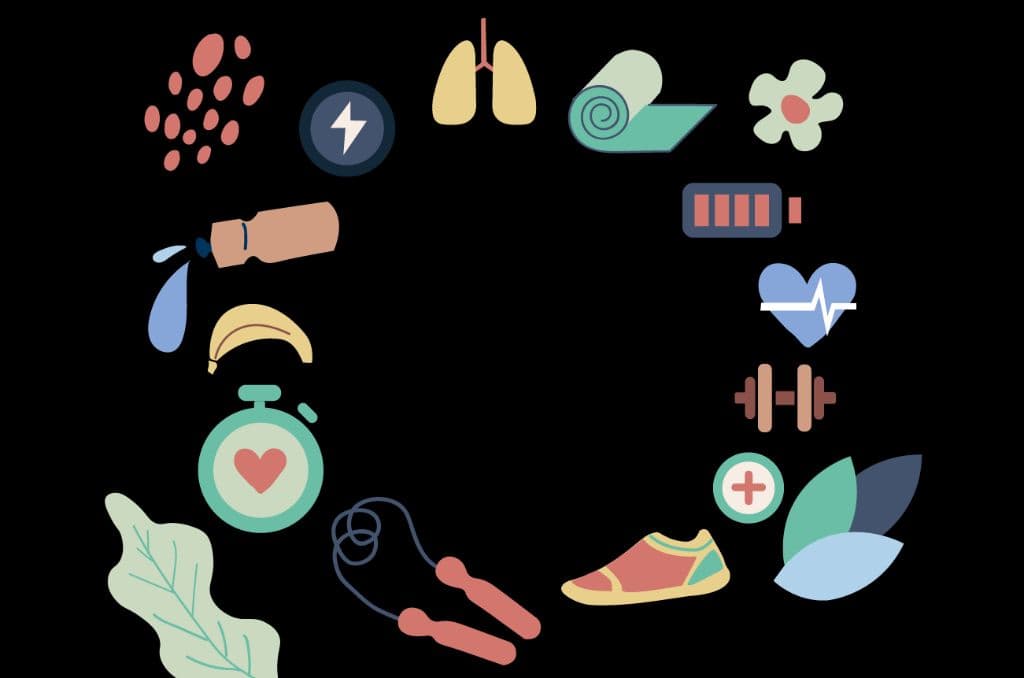What is the keto diet?
The ketogenic or keto diet is a high fat, moderate protein and low carbohydrate diet.
- Low carbs, high fats: You have to cut down on your carb consumption and replace it with fats. Your body will start utilising fats as its primary source of energy instead of carbohydrates. This state of the body is called ketosis.
- Moderate protein: If you consume high amounts of protein, your body will convert it into glucose through a process called gluconeogenesis. Hence, make sure your protein consumption is moderate.
- Practice intermittent fasting: If you follow intermittent fasting along with a ketogenic diet, your body will get into the ketosis phase faster.
People often tend to confuse the keto diet with the Atkins diet. However, both are not the same as the Atkins diet is a high protein, low fat and low carbohydrates diet.
What are the health benefits of the keto diet?
Primarily, the keto diet was used to control seizures in epileptic patients. Since your body becomes highly efficient in burning fats, this diet has proven benefits for improving hormonal imbalances and managing weight as well. By not consuming too many carbohydrates, it helps to reduce your blood sugar levels and insulin resistance. To elaborate, this diet proposes health benefits in patients with the following conditions:
- Neurological conditions like Parkinsonism, ALS and epilepsy
- Obesity or excess fat
- Type 2 Diabetes
- Glycogen storage disease
- Sleep issues
- Cognitive impairments
- Hypothyroidism
- PCOS
- Cancer

What are the different types of ketogenic diets?
There are different types of keto diets with varied benefits. If you are just starting out, talk to your doctor about the type of diet best suited for you and your goals.
Standard ketogenic diet
This diet involves a combination of low carb, moderate protein and high fat.
Your diet should comprise of:
60-70% of fats
20-25% of protein
10-15% of carbohydrates (less than 50 gm)
Beneficial for: epilepsy, weight loss
A cyclical ketogenic diet
In this type of keto diet, you consume a standard ketogenic diet for 5 days followed by 2 normal carb days. The carbs consumed on those 2 days should be less than 300 gm.
Beneficial for: bodybuilders, athletes, people who want to reduce their body fat percentage
Targeted ketogenic diet
This diet involves consuming carbs around your physical activity or workout time to help you sustain your workouts. The carbs can be consumed 30-60 mins before your workout.
Beneficial for: people who do weight training and HIIT
What foods are allowed in a keto diet?
In a keto diet, a small, exclusive list of foods are allowed to eat.
- Meats: Bacon, sausages, salamis, broth, pork, chicken, goat meat, chops, turkey, duck
- Cheese: Prefer to use: cheddar, mozzarella, cream, feta, parmesan, swiss, blue
- Vegetables: Cabbage, fenugreek, kale, spinach, asparagus, cauliflower, bell peppers, tomatoes, onion, olives, lettuce, cucumber, celery, dill, beans, broccoli, zucchini, avocado, pakchoi, amaranth (red and green), cowpea leaves, bathua, mint, mustard leaves, karela, dudhi, brinjal, french-beans, parwar, bhindi, pumpkin, ridge gourd, tendali, button and chicken mushrooms
- Fruits and berries: Blueberries, strawberries, raspberries, gooseberry, papaya, peach, sweet lime, star fruit, grapefruit, orange, apple
- Nuts: Almonds, walnuts, sesame, peanuts, flax seeds, pine seeds, pistachios, sunflower seeds, pumpkin seeds
- Oil: Prefer to use: olive, canola, butter, ghee
- Sauces/ dressings: Marinara, hollandaise, vinegar, yoghurt blue cheese dressing, honey basil dressing, Caesar salad dressing, mayonnaise, sour cream
- Miscellaneous: Unsweetened cocoa powder, nut butter, almond/ coconut flour, hydro/ iso whey, prefer mayo made from canola/ olive oil, etc.
What foods should you avoid or limit in a keto diet?
You have to avoid the foods not mentioned in the above list. It includes:
- Honey, refined sugar, any other form of sugar
- Processed foods
- All grains like wheat, rice, corn, cereal, oats etc.
- All beans, legumes, pulses, peas
- Root and starchy vegetables such as potatoes, sweet potatoes, carrots, etc.
- High-sugar fruits
- Milk
- Alcohol (with a few exceptions)
How do you start following a keto diet?
Here are a few tips and points to remember if you plan to shift to a keto diet.
Before shifting to a keto diet
Consult a doctor: It is a must to consult a doctor before you shift to a keto diet to understand if you are eligible for it. Preferably, go to a doctor who specialises in prescribing ketogenic diets and thoroughly understand it before making any decision.
Get tested to check your eligibility: The following tests will help your doctor determine if you can start on a keto diet. It is a crucial step, or you will end up harming your health.
- Lipid profile
- Blood sugar - fasting, PP and HbA1c
- Renal function tests
- Liver function tests
- Electrolytes
- CRP/ ESR
- Homocysteine
Learn about the pros and cons of a keto diet: It is important to make informed decisions before making drastic diet and lifestyle changes in your life.
Pros:
- Eating good quality fats will improve your skin quality.
- Your hormonal balance will also be better.
- Cutting down on carbs puts your body into a ketosis phase. Hence, your body burns all the fats you eat as well as the fats stored in your body. You can lose weight with a keto diet.
Cons:
- Following a keto diet for a prolonged period can be difficult due to the numerous food restrictions.
- It is a comparatively expensive diet to follow.
- It can have side effects such as keto flu, upset stomach, constipation, fatigue, headache, deranged cholesterol or triglyceride profile.
- You can become deficient in some nutrients due to cutting down on carbs.
- You must be careful about the quality of fats you are consuming. Continually eating bad quality fats can have ill effects on your liver, kidneys and heart.
When you have shifted to a keto diet
No need to transition into keto slowly: The ultimate goal of the keto diet is to get your body into the ketosis phase. If you transition slowly, then it will take a lot of time for your body to adapt. So, do not transition slowly; directly shift to the keto diet.
Plan the diet and meals well: Meal planning becomes crucial because there are many food restrictions in a keto diet. Be mindful about what foods you stock up in your pantry. If you plan and prepare your meals and snacks well in advance, it will become easier to follow the plan.
Manage portion sizes: For a keto diet to be effective, you must constantly monitor the number of calories you consume and learn to manage the portion sizes.
Hydrate yourself: Since there is additional loss of fluids, hydrating yourself becomes crucial.
Take supplements: There are high chances of becoming deficient in some nutrients because you cut down on many foods. Consult your doctor if you need to take any supplements to compensate for it.
Limit eating outside: If you plan to eat in restaurants, you must find the ones that serve foods that fit in a keto diet.
Follow it for at least 3-4 months: Our body requires 3-6 weeks for completely transitioning into the ketosis phase. For achieving effective results, you need to do it for at least 3-4 months.
When you plan to stop the keto diet
Some people choose to follow the keto diet for their entire lives. But if you want to stop keto and get back to your previous diet, you must do it gradually.
Gradually introduce carbs to your diet: After following a keto diet, if you want to transition back to low fat, moderate protein and high carb diet, you must gradually increase the number of carbs in your diet. If you start eating a lot of carbs suddenly, your body may not process it well. You may experience bloating and gain too much weight suddenly.
Be ready for some weight gain: When you shift back to your previous diet, you are bound to gain some weight. If you do it the right way, the weight gain will not be too significant.
Who should avoid the keto diet?
People having the following medical conditions should avoid the keto diet.
- Deranged cholesterol or triglyceride profile
- Deranged renal parameters
- Risk of heart disease
- Type 1 diabetes
- Concerns with liver or pancreas
- Issues with the gallbladder
- History of eating disorders
- Pregnant and nursing women
Conclusion
Keto diet can be beneficial for people wanting to lose weight or manage their hormones. However, it may not be suitable for everyone due to various reasons. If you come across the keto diet and plan to make a shift to it, always speak to your doctor first. Making sudden changes to your diet without appropriate guidance and supervision can prove detrimental to your health.
Disclaimer: This information is educational and should not be construed as medical advice. Please consult your doctor before making any dietary changes or adding supplements.
Proactive For Her is a digital clinic for women, offering accessible, personalised, and confidential healthcare solutions. We offer out-patient care, diagnostic services and programs for various health concerns of Indian women, across their lifetime - from puberty to pregnancy to menopause.

